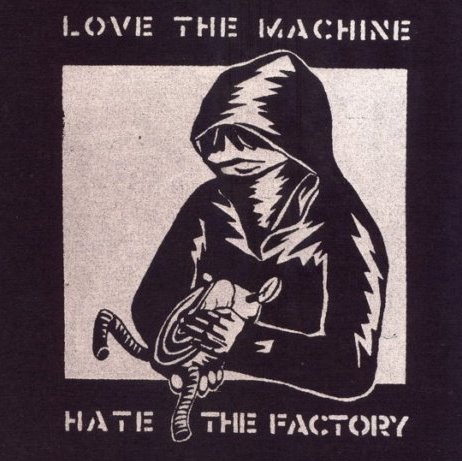“You revolutionists,” the other continued, with leisurely self-confidence, “are the slaves of the social convention, which is afraid of you; slaves of it as much as the very police that stands up in the defence of that convention. Clearly you are, since you want to revolutionise it. It governs your thought, of course, and your action too, and thus neither your thought nor your action can ever be conclusive… You are not a bit better than the forces arrayed against you - than the police, for instance. The other day I came suddenly upon Chief Inspector Heat at the corner of Tottenham Court Road. He looked at me very steadily. But I did not look at him. Why should I give him more than a glance? He was thinking of many things - of his superiors, of his reputation, of a hundred things. But I was thinking of my perfect detonator only. He meant nothing to me. He was as insignificant as - I can’t call to mind anything insignificant enough to compare to him with… The terrorist and the policemen both come from the same basket. Revolution, legality - counter moves in the same game; forms of idleness at bottom identical. He plays his little game - so do you propagandist. But I don’t play...I who am the true propagandist.”( Conrad 86)
“The slaves of the social convention”-----> The professor refers to revolutionist this way to give the readers a sense of how they they don’t have any control of their thoughts or actions
“The same basket” -----> The police and revolutionist think that they are going against each other, but one's job doesn’t exist without the other.
“My perfect detonator”-----> Here the professor is so self absorbed about his “perfect”invention, he refers to the police officer as “insignificant”
“But I don’t play...I who am the true propagandist” -----> The professor is not in the same basket and removed from the game.
Through the professor, Conrad makes clear his opinion of what he believes revolutionaries and anarchist are. Conrad makes clear his opinion that revolutionaries and anarchists are fakes. He believes they want change from the government. However, with the phase “the slaves of the social convention”, the revolutionist aren’t allowed to be human beings because they are “slaves”, and they just do what they're told to and act accordingly. This is still following a set of rules, when they are supposed to be against following the rules. The police too are also in “the same basket,”. They can only follow the laws and enforce them.The Professor doesn’t see change fast enough which is why he praises working individually. The professor thinks the people who work together don’t get anything accomplished, if they do it’s small change. He believes people who work together are playing.

No comments:
Post a Comment